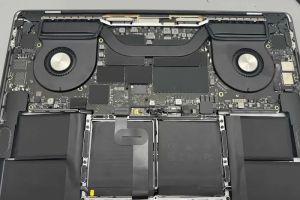How Much for Computer Repair: Understanding the Costs and Factors
If you're experiencing issues with your computer, you might wonder how much it will cost to get it repaired. Whether it’s a malfunctioning laptop, slow performance, or a damaged screen, understanding the cost of computer repair can help you make informed decisions. In this article, we will delve into the various factors that affect computer repair prices, provide an estimate of costs for common repairs, and give you tips on how to save on repair expenses.

Action Computers Inc. -- Denver Location
2890 S Colorado Blvd F, Denver, CO 80222, USA
1. Factors That Influence Computer Repair Costs
When it comes to the cost of computer repair, there is no one-size-fits-all answer. Several factors can influence how much you'll pay for repairs. These include the type of repair needed, the device’s make and model, the technician's expertise, and the region you are located in.
For example, if your computer has a hardware issue, such as a broken screen or a malfunctioning hard drive, it may be more expensive than a software-related problem like a virus or operating system malfunction. Moreover, if you own a high-end laptop like a MacBook or a specialized gaming PC, the cost of parts and labor can be higher. Additionally, the repair shop's location plays a role—repairing a computer in large cities tends to be more expensive than in smaller towns.

Fix It Computer Repair
2638 Geranium Ln, Fort Collins, CO 80525, USA
2. Common Computer Repairs and Their Costs
Here are some common computer repairs and their estimated costs to give you an idea of what to expect when you need repairs:
- Screen replacement: Replacing a cracked or damaged laptop screen can cost anywhere from $100 to $300, depending on the model.
- Hard drive replacement: If your hard drive fails and needs to be replaced, expect to pay between $100 and $250 for the parts and labor.
- Virus and malware removal: This can range from $50 to $150, depending on the complexity of the infection and the time required to clean your system.
- RAM upgrade: Upgrading your computer’s RAM typically costs between $50 and $150, depending on the amount of memory and the type of system.
- Battery replacement: Replacing a laptop battery typically costs between $80 and $200, depending on the brand and model.
Keep in mind that these are estimates, and the final cost could vary based on additional factors such as location and technician rates.
3. The Role of the Technician in Repair Pricing
The expertise and experience of the technician can significantly affect the cost of your computer repair. Skilled technicians with years of experience and certifications tend to charge more for their services than those just starting out in the field. While you may be tempted to go with the cheapest option, it’s important to balance cost with quality. Opting for an experienced technician can ensure that the job is done right the first time, saving you money in the long run by avoiding the need for repeat repairs.
4. DIY Repairs: Is It Worth It?
Many computer users are turning to DIY methods to save money on repairs. While this can be a viable option for minor issues, such as replacing a keyboard or installing additional RAM, there are risks involved, especially for more complicated repairs like motherboard or screen replacements. If you don’t have the technical knowledge or tools, attempting a repair could cause further damage to your device, leading to higher repair costs or even a total loss of your computer.
If you’re considering a DIY fix, make sure you research the problem thoroughly, watch tutorials, and weigh the potential savings against the risks involved.
5. Warranty and Insurance: How They Can Help You Save
One of the easiest ways to save on computer repairs is by taking advantage of warranties and insurance. Many manufacturers offer warranties that cover repairs for certain issues, such as hardware failures. For example, if your computer is still under warranty and the issue is covered, you may be able to get the repair done at little to no cost.
Additionally, some homeowners' insurance policies or third-party providers offer protection for electronics, including computers. This could help cover the cost of repair or replacement if your computer is damaged or malfunctioning. Always check with your insurance provider to see if this coverage is available.
6. Choosing a Reliable Computer Repair Service
When selecting a computer repair service, it’s important to find a reliable provider who can offer quality repairs at a fair price. Here are a few tips for choosing a reputable repair service:
- Check reviews: Look for customer reviews and ratings to get an idea of the service provider's reputation.
- Ask about warranties: A reputable service should offer warranties on their repairs, ensuring that you are satisfied with the work.
- Get a written estimate: Before agreeing to any repairs, ask for a written estimate that outlines the cost of parts and labor.
- Ensure certification: Make sure the technician is certified or has experience with the specific issue you are facing.
Taking the time to find the right repair service can help you avoid unnecessary expenses and ensure your computer is repaired properly.
Conclusion: Making the Right Choice for Your Computer Repairs
When it comes to computer repairs, the cost can vary widely depending on the issue and the service provider you choose. By understanding the factors that influence repair prices and the different options available, you can make an informed decision about whether to seek professional help, attempt a DIY fix, or use your warranty or insurance coverage. Always weigh the potential costs, risks, and benefits before proceeding with any repair to ensure you're getting the best value for your money.
For more information on computer repair services and to schedule a consultation, feel free to visit our website at Computer Repair to explore our offerings and get your device back in optimal condition.





























